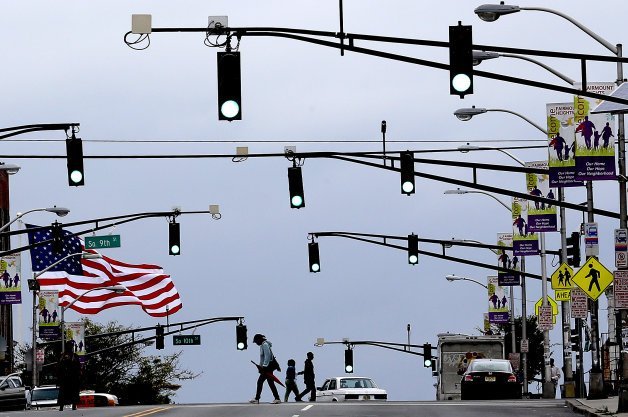Invention Turns Traffic Lights Into a Game to Ease Congestion

And yes, sometimes, we might just blame the oppressive injustice doled out by traffic lights, particularly when we hit every... single... red.
But a researcher from the University of Toronto named Samah El-Tantawy might have a solution to at least the traffic light issues. As part of a pilot program in Toronto and Cairo, El-Tantawy installed a sort of artificial intelligence system in the lights that allows them to communicate with each other through decision-making strategies rooted in game theory to manage the traffic flow, rather than rely on algorithms from a central command center.
"In lay language, the [traffic lights] act as a team of players cooperating to win a game - much like players in a soccer match, where each player endeavors to score, but at the same time considers the ultimate goal of the entire team which is winning the match," El-Tantawy said in a University of Toronto press release, according to Yahoo! Canada News.
In Toronto, the effect of El-Tantawy's lights on just 60 city intersections reduced traffic by about 40 percent and cut down on travel times by just over a quarter. It's unclear what the effects were in Cairo.
Still, the chances of having our travel times cut down by up to 25 percent and the environmental implications of slashing traffic delays by 40 percent, make the idea of these autonomous traffic lights something we'd like to see in our own cities. I for one welcome our new traffic light overlords.
Nouvelles connexes


